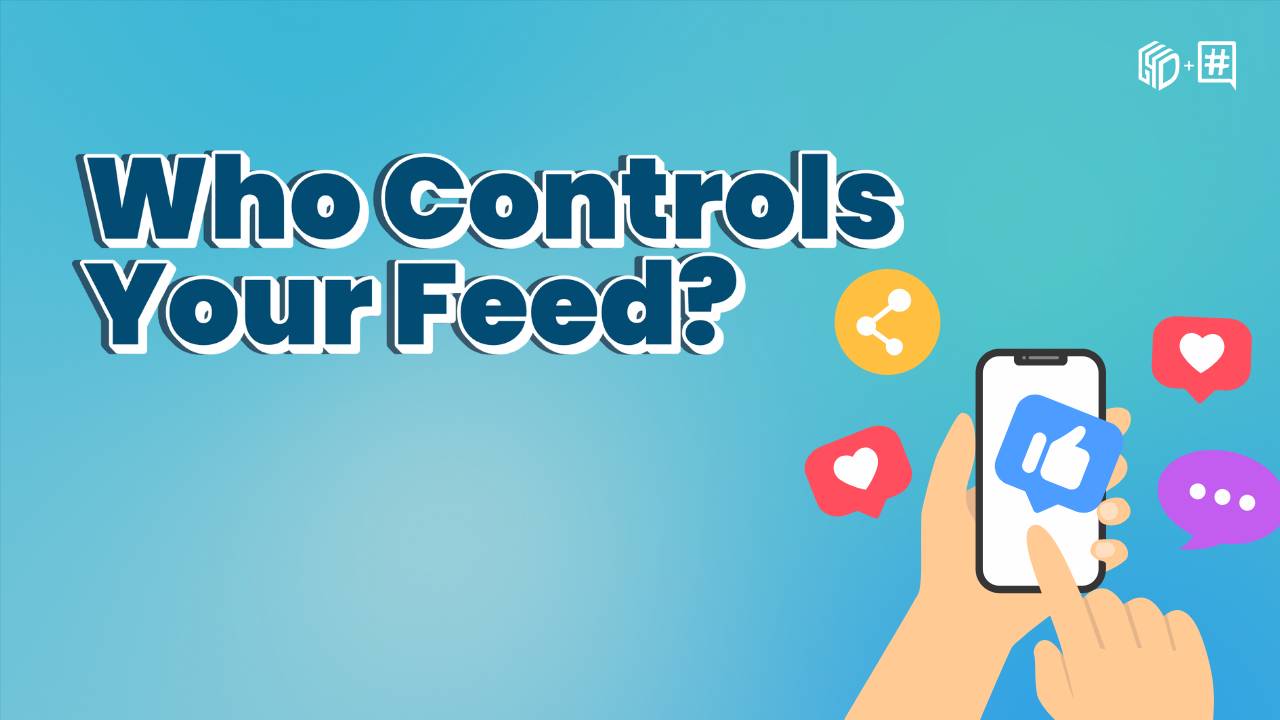Who Controls Your Feed? The Hidden Power of Algorithms in Shaping Public Opinion
Sep 02, 2025
By: Caitlin Franklin | Seasonal Public Relations Intern | Digital4Good
Ever feel like your social media feed is reading your mind? You search for sneakers once, and suddenly your timeline is bursting with shoe ads. You laugh at one video, and your For You Page is now a dedicated fan page. It’s not magic — it’s the work of an algorithm, and while it may seem harmless, it carries profound influence over what you see, think, and believe.
In this article, you'll learn how algorithms work, how they affect your worldview, and most importantly, how you can reclaim control over what you see online — even using voice assistants like Siri or Google Assistant.
What Is an Algorithm, Really?
An algorithm is a sequence of rules or instructions used by social platforms like TikTok, Instagram, YouTube, and Facebook to decide what content appears on your feed. Imagine it as a digital DJ spinning content it thinks you'll love, based on your previous behavior — your likes, shares, comments, watch history, and even your hesitation on certain posts.
Sounds convenient, right? But this personalization comes with a hidden cost: narrowing your digital worldview and isolating you from diverse perspectives.
Welcome to the Echo Chamber
Imagine being at a party where everyone agrees with you — all the time. Feels comfortable, but after a while, it gets dangerously one-sided. This is exactly what happens in an echo chamber: an environment where similar opinions bounce around and opposing views are pushed out.
Social media algorithms can unintentionally create digital echo chambers by continuously feeding you content that aligns with your past interactions. Over time, this narrow view becomes your perceived reality.
Voice Search Tip:
Try asking, “Hey Siri, how can I tell if I’m in a social media echo chamber?”
The Algorithmic Reinforcement Loop
Once inside the echo chamber, confirmation bias kicks in — the tendency to favor information that confirms what you already believe. Algorithms detect and double down on that bias, serving you more of the same, reinforcing your beliefs, and filtering out everything else.
This creates a feedback loop:
Click → Confirm → Repeat → Reinforce.
This digital cycle can deepen divides, promote misinformation, and stunt empathy across social, political, and cultural issues.
Algorithmic Bias, Radicalization & Misinformation
Algorithms don’t just reflect your preferences — they influence them. Researchers have found that recommendation engines can steer users toward more extreme content. This is particularly alarming when it comes to misinformation, conspiracy theories, or politically charged topics.
Recent studies have even shown that AI-powered bots are more persuasive than humans in shaping opinions — especially when targeting users at scale.
Why Are Algorithms Designed This Way?
In a word: engagement. The longer you stay on a platform, the more ads you see, and the more revenue the company earns. These systems aren’t designed to deceive — but they’re also not built to inform you fairly or offer a balanced view.
Some governments and political campaigns have even exploited these systems to manipulate search rankings and public sentiment, raising serious questions about algorithmic accountability.
How to Make Your Feed Work for You
Here’s how to break out of your digital bubble and reclaim control:
1. Follow Diverse Voices
Seek out creators, experts, and perspectives outside your norm. Exposure to different viewpoints broadens your understanding.
2. Use Multiple News Platforms
Avoid relying on a single source. Instead, mix traditional outlets with independent voices for a more balanced narrative.
Voice Search Tip:
Say, “Ok Google, show me news from both conservative and liberal sources.”
3. Engage Mindfully
Every click, comment, or view teaches the algorithm what to show you. Mix up your interactions to diversify your content stream.
4. Have Offline Conversations
Connect with people in real life — especially those who challenge your perspectives. These discussions can widen your lens.
5. Practice Digital Literacy
Don’t take every post at face value. Verify sources, cross-check facts, and develop a healthy skepticism.
The Bigger Picture: Building a Better Digital Ecosystem
Tech platforms can redesign algorithms with transparency and fairness. Governments can regulate, and educators can empower users through media literacy. At Digital4Good, we’re focused on helping students and families become intentional, informed digital citizens — transforming the web into a tool for growth, not division.
Algorithms Are Tools—Not Truths
Understanding how your feed works can help you consume content more consciously. Whether you're scrolling, searching, or asking Alexa, remember: you’re not just a passive user — you're an active participant in shaping your digital reality.
Be intentional. Stay informed. Use your feed to build empathy, not echo chambers.
Stay connected with news and updates!
Join our mailing list to receive the latest news and updates from our team.
Don't worry, your information will not be shared.
We hate SPAM. We will never sell your information, for any reason.


